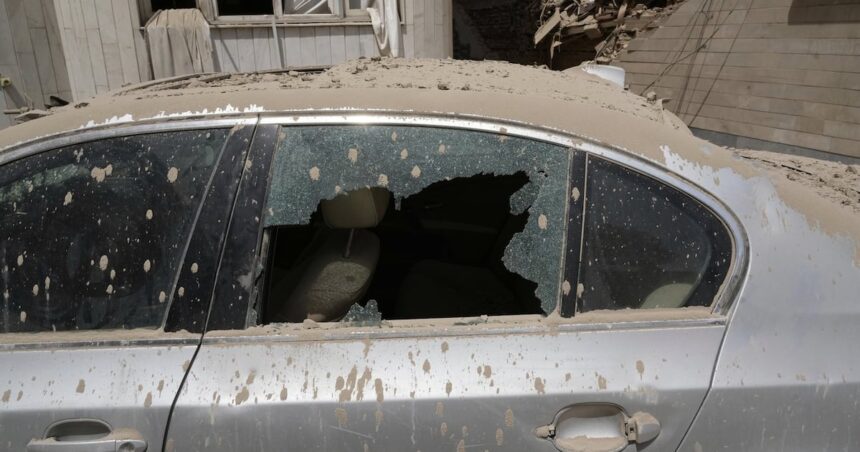The mud-caked boots still sit by the front door of Farhad Karimi’s Montreal apartment. Three weeks since his harrowing evacuation from Tehran, he hasn’t found the energy to clean them—perhaps because they’re the last physical connection to the home he may never see again.
“When the sirens started, I was finishing my doctoral research at the university library,” Karimi tells me, his voice steady but his eyes fixed on something far beyond the café window where we meet. “By midnight, we could see the missile contrails from my parents’ rooftop. That’s when I knew this wasn’t like the previous tensions.”
Karimi, 29, represents the increasingly common face of academic displacement—scholars caught between countries when geopolitical flashpoints ignite. After completing his master’s degree at McGill University in 2023, he had returned to Iran to gather field data for his dissertation on water resource management. What should have been a three-month research trip extended to eight months as regional tensions escalated.
The recent conflict eruption caught thousands of dual nationals and international students in its crossfire. According to the International Crisis Group, approximately 4,300 students with ties to Western universities were in the region when hostilities intensified in mid-June. Canadian officials report successfully evacuating 212 Canadian citizens and permanent residents from the region in the past three weeks.
“The evacuation itself was so terrifying,” Karimi recalls. “My Canadian passport meant I qualified for the emergency extraction, but my parents couldn’t come. Leaving them at the checkpoint—” he pauses, collecting himself. “I still hear my mother saying ‘Go, just go’ when I try to sleep.”
Dr. Elisabeth Warner, Director of the Center for Forced Migration Studies at Northwestern University, explains that academic displacement creates unique vulnerabilities. “These students often occupy a precarious middle space—not fully recognized as refugees, yet unable to continue their academic trajectories. Their knowledge becomes collateral damage in conflicts.”
Karimi’s journey out involved a 17-hour bus ride to Turkey, followed by commercial flights coordinated through Canadian consular services. He credits the Iranian-Canadian Academic Network with providing crucial logistical support when official channels became overwhelmed.
“They helped me secure temporary housing in Montreal and connected me with emergency funding through the Scholar Rescue Fund,” he explains. “Without them, I’d be sleeping on someone’s couch with no way to continue my research.”
The Scholar Rescue Fund, which provides fellowships for threatened academics worldwide, reports a 43% increase in emergency applications since March. The organization has allocated an additional $1.2 million for scholars displaced by the current Middle East crisis.
For universities, the situation presents complex challenges. Dr. James Hendricks, McGill University’s Vice Provost for International Affairs, acknowledges the strain on institutional resources.
“We’ve established emergency completion grants and accelerated visa processing for affected students,” Hendricks says. “But the bureaucratic hurdles remain significant. These students often arrive with incomplete documentation, interrupted research, and serious trauma.”
Karimi considers himself fortunate despite everything. His research data was backed up to cloud storage, and his Canadian permanent residency application had been approved just weeks before the conflict erupted. Many of his peers face more uncertain futures.
“My friend Amir was researching at Tehran University on an American scholarship,” Karimi shares. “He’s Iranian-born but hasn’t lived there in fifteen years. Now he’s trapped—the American embassy can’t help him, and returning to the U.S. means abandoning his parents and potentially never seeing them again.”
The psychological toll extends beyond immediate safety concerns. Dr. Samira Abedi, a clinical psychologist specializing in refugee mental health at the University of Toronto, describes the phenomenon as “suspended grief.”
“These students experience a unique form of ambiguous loss,” Abedi explains. “They’re physically safe but emotionally torn between worlds. They watch their homelands in crisis through screens while trying to function academically in environments that often don’t comprehend their trauma.”
Back in his Montreal apartment, Karimi attempts to establish new routines. His university has granted him a research extension, and he’s secured a teaching assistantship for the fall semester. Yet the psychological transition remains challenging.
“I check my phone constantly for news and messages from home,” he admits. “When the internet gets restricted there, I panic. My parents are elderly—my father has diabetes and needs regular care. The uncertainty is sometimes worse than being in actual danger.”
As our interview concludes, Karimi reveals he’s organizing an informal support network for displaced Iranian academics in Canada. Twenty-seven scholars have joined their weekly virtual meetings where they share resources and simply provide witness to each other’s experiences.
“We need to be seen as more than statistics or successful evacuations,” he says. “Each of us carries interrupted work that matters—research that could help communities, advance knowledge, maybe even contribute to peace.”
For now, those mud-caked boots remain by his door—not just as a reminder of what he’s lost, but as a symbol of the difficult journey still ahead.






